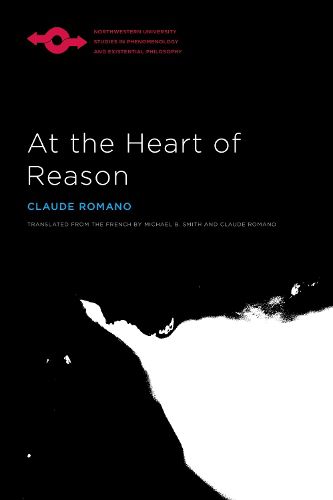Readings Newsletter
Become a Readings Member to make your shopping experience even easier.
Sign in or sign up for free!
You’re not far away from qualifying for FREE standard shipping within Australia
You’ve qualified for FREE standard shipping within Australia
The cart is loading…






In At the Heart of Reason, Claude Romano boldly calls for a reformulation of the phenomenological project. He contends that the main concern of phenomenology, and its originality with respect to other philosophical movements of the last century, such as logical empiricism, the grammatical philosophy of Wittgenstein, and varieties of neo-Kantianism, was to provide a
new image of Reason.
Against the common view, which restricts the range of reason to logic and truth-theory alone, Romano advocates big-hearted rationality, including in it what is only ostensibly its opposite, that is, sensibility, and locating in sensibility itself the roots of the categorical forms of thought. Contrary to what was claimed by the linguistic turn, language is not a self-enclosed domain; it cannot be conceived in its specificity unless it is led back to its origin in the pre-predicative or pre-linguistic structures of experience itself.
$9.00 standard shipping within Australia
FREE standard shipping within Australia for orders over $100.00
Express & International shipping calculated at checkout
In At the Heart of Reason, Claude Romano boldly calls for a reformulation of the phenomenological project. He contends that the main concern of phenomenology, and its originality with respect to other philosophical movements of the last century, such as logical empiricism, the grammatical philosophy of Wittgenstein, and varieties of neo-Kantianism, was to provide a
new image of Reason.
Against the common view, which restricts the range of reason to logic and truth-theory alone, Romano advocates big-hearted rationality, including in it what is only ostensibly its opposite, that is, sensibility, and locating in sensibility itself the roots of the categorical forms of thought. Contrary to what was claimed by the linguistic turn, language is not a self-enclosed domain; it cannot be conceived in its specificity unless it is led back to its origin in the pre-predicative or pre-linguistic structures of experience itself.